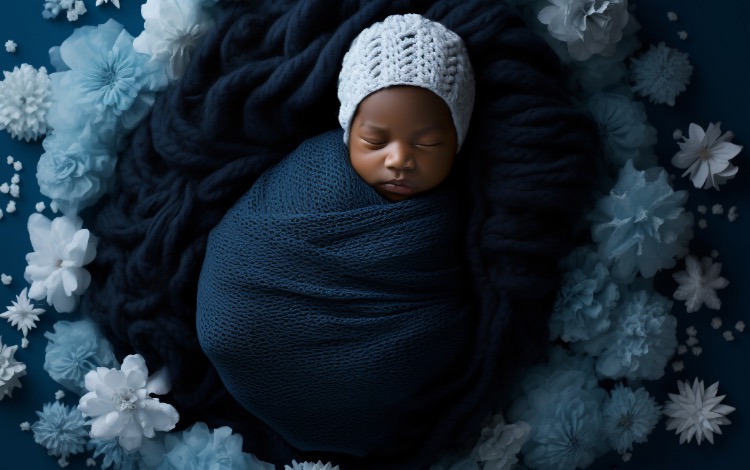
There’s a moment, shortly after a child is born, when the world pauses waiting for the name. In many African cultures, this moment is not rushed. It is sacred. A name is more than a label. It is a blessing, a story, a declaration of hope and history. Naming ceremonies across Africa are deeply meaningful traditions that continue to thrive today. They offer families a chance to affirm their cultural heritage, pass on values, and celebrate new life with purpose and joy.
What Is Said at Naming Ceremonies?
The heart of any naming ceremony is the spoken word; what is said carries weight, power, and spiritual intent.
In Yoruba naming ceremonies (Isomoloruko), elders and parents take turns speaking blessings and proverbs over the child. The officiating elder, often a grandparent or respected community member, may announce the names with a declaration of their meanings and reasons. For instance:
“We name this child Temidayo because through this child, our story has turned to joy.”
Prayers are also common. Depending on the family’s religious beliefs, these may be traditional invocations, Christian prayers, or Islamic blessings.
In the Empaako naming tradition of western Uganda, the celebrant bestows one of twelve shared names (such as Akiiki or Amooti) alongside the personal name. These names are then used throughout life as terms of endearment and social cohesion. The community often sings and offers collective blessings, reinforcing the child’s belonging.
No matter the region, what is said in a naming ceremony is a mix of storytelling, thanksgiving, aspirations, and ancestral recognition. It’s a spoken love letter to the child’s identity.
What Items Are Needed for a Naming Ceremony?
The items used during a naming ceremony vary across cultures, but most carry deep symbolic meaning.
Here are some common elements:
- Water – Symbolizes purity and life. It may be touched to the child’s lips or sprinkled to bless the child’s path.
- Honey or Sugar – Represents sweetness and the hope for a joyful, pleasant life.
- Palm Oil – Symbolizes prosperity, smoothness in life, and richness of experience.
- Alcohol or Libation Drink – Used to honor ancestors and invite their blessings.
- Kola Nuts – Common in Igbo ceremonies, signifying hospitality, unity, and a bond with the spiritual world.
- Salt – Sometimes included to represent wisdom and preservation.
- Bible or Quran – For families incorporating religious traditions, sacred texts may be read or placed beside the child.
Traditional attire, musical instruments, symbolic jewelry, and sometimes gifts for the child (like gold chains, clothes, or cowries) may also be included, depending on the community.
How Do I Prepare for a Baby Naming Ceremony?
Planning a naming ceremony involves both logistical preparation and emotional readiness.
1. Choose the Date Thoughtfully
Most cultures have specific timelines. Yoruba families often hold ceremonies on the 7th day, while Akan families observe the 8th day. In the diaspora, some may wait until after church dedications or family visits.
2. Decide on the Names in Advance
Multiple names are often given: spiritual, ancestral, day-of-birth, and personal. Discuss meanings and significance with family members.
3. Select the Officiant(s)
This could be a grandparent, elder, religious leader, or respected friend. Let them know ahead of time if they’ll be speaking or conducting any rites.
4. Gather Your Symbolic Items
Prepare the materials mentioned earlier, ensuring they reflect your family’s beliefs and intentions.
5. Plan the Gathering
Whether intimate or large, virtual or in-person, the event should feel communal. Include music, food, and space for blessings or well-wishes.
6. Write Down the Meanings
Prepare a short explanation of each name and its story. This adds depth and allows attendees to connect with the significance of the moment.
Why Naming Ceremonies Still Matter Today
In a globalized world where cultures blend and traditions are constantly evolving, African naming ceremonies remain vital for several reasons:
Cultural Continuity
They root children in their heritage from day one. For diaspora families, they offer a bridge back to home, history, and identity.
Affirming African Identity
Naming ceremonies resist the historic erasure caused by colonization, slavery, and forced assimilation. Choosing culturally meaningful names is an act of pride and reclamation.
The Empaako tradition from Uganda beautifully illustrates this. Practiced by the Batooro, Banyoro, Batuku, Batagwenda, and Banyabindi peoples, the ceremony assigns a shared name from a pool of twelve, used to promote harmony and affection. Recognized by UNESCO as an endangered cultural heritage, Empaako demonstrates the ceremony’s role in social identity and cohesion.
Creating Intentional Identities
Rather than following trends, African naming ceremonies focus on thoughtful identity-making, names chosen with meaning, relevance, and care.
In a Name, a Legacy
Whether it’s Nia from Swahili meaning “purpose,” Kwame for a Saturday-born Akan boy, or Amooti from Uganda’s Empaako, African names are not casual decisions. They are declarations of hope, strength, and belonging.
Naming a child is not just about the present, it’s about setting the tone for a lifetime. And that’s why these naming ceremonies, in all their beauty and diversity, still matter.






